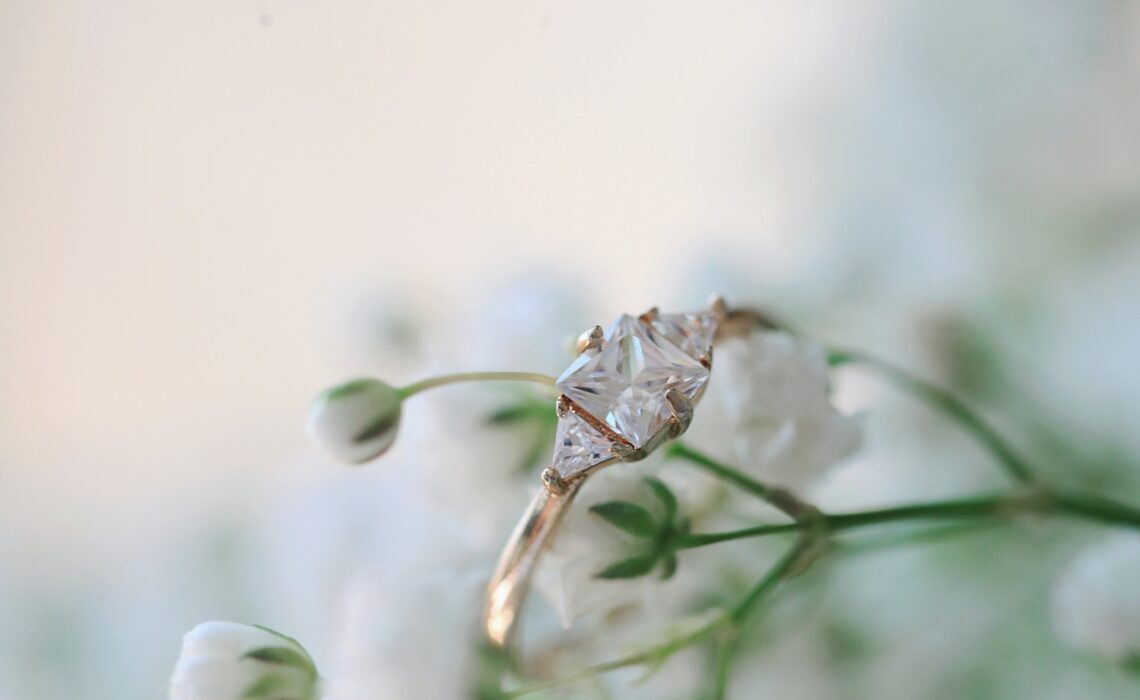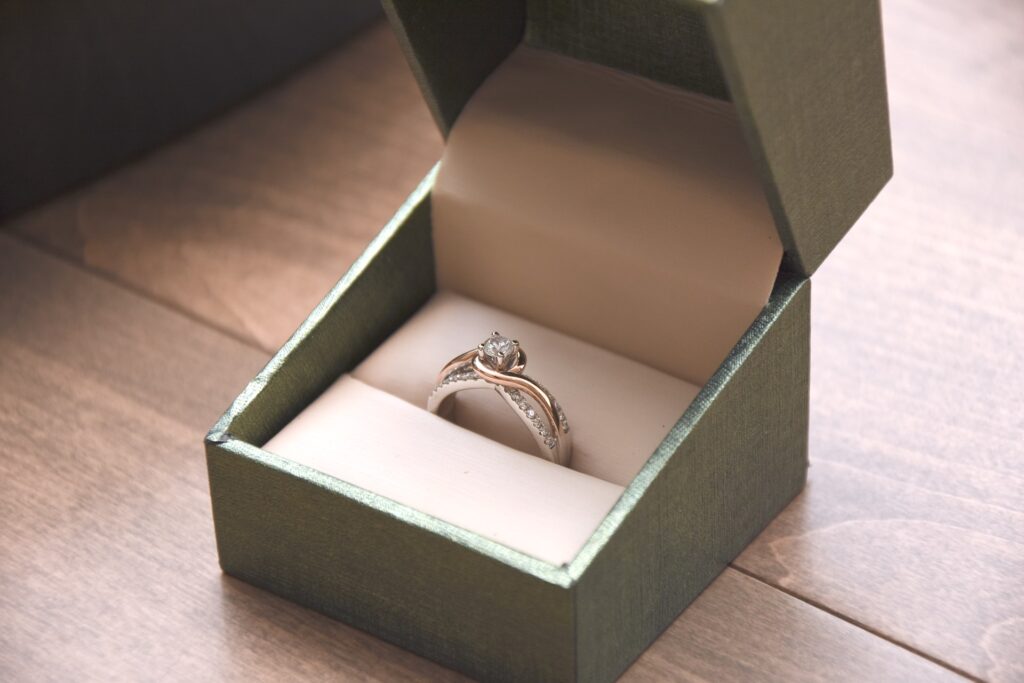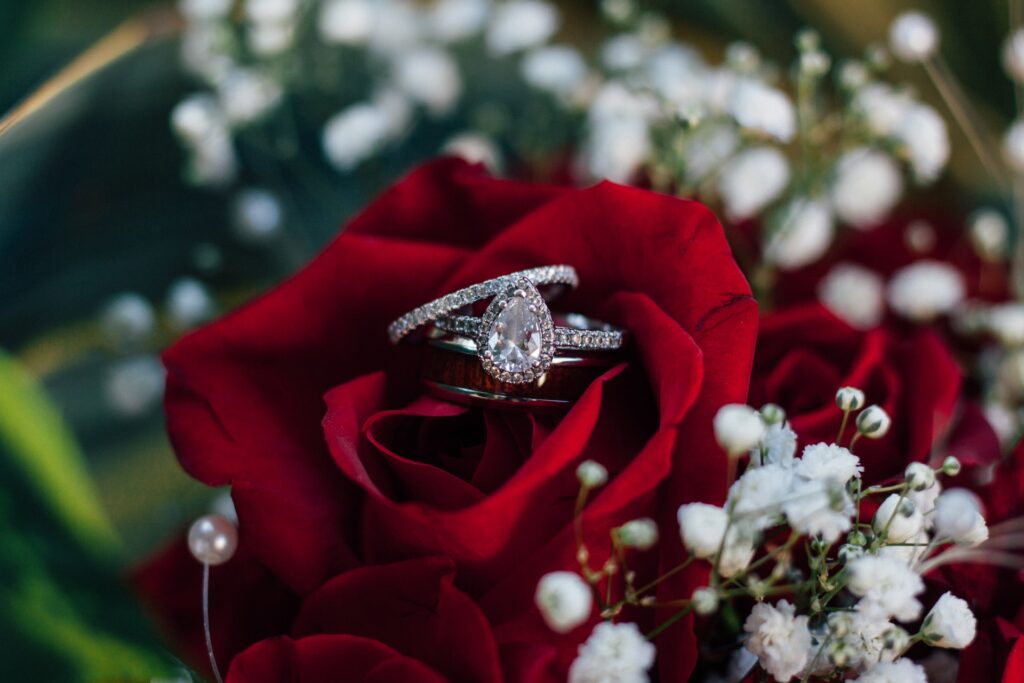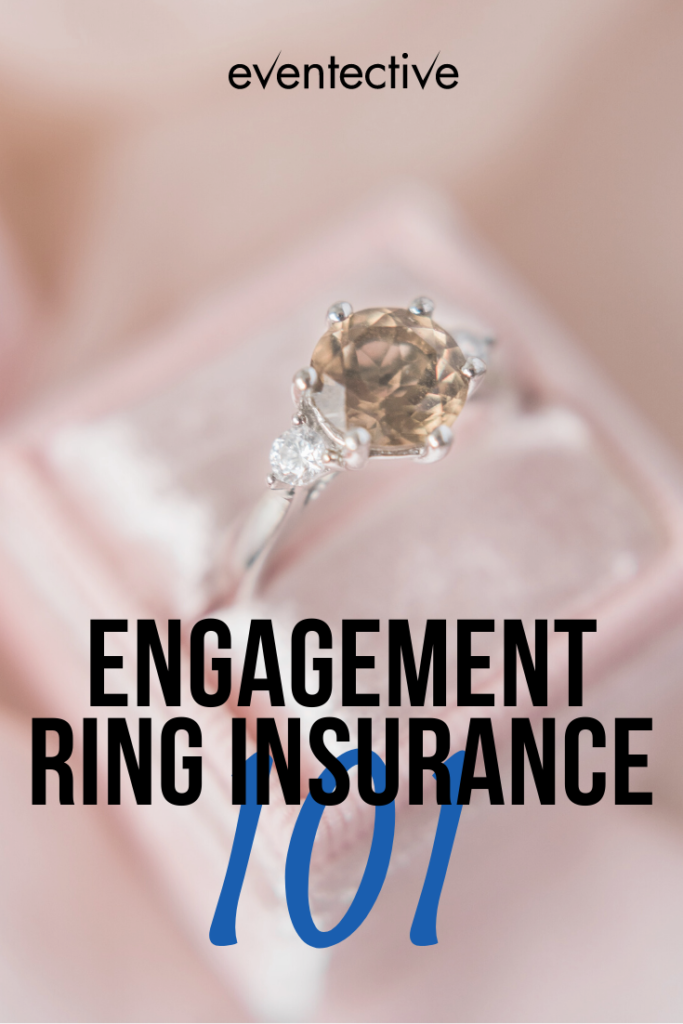
An engagement ring is a symbol of the love and devotion between you and your partner. But it’s also an investment. Much like buying a house or a car, your engagement ring has value outside of your personal use. You may never plan to sell it—just like you may never sell off your dream car. But you still want to protect your investment while you have it. Well, that’s where engagement ring insurance comes in.
The average cost of an engagement ring is between $6,350 and $7,750, depending on who you ask. That’s a significant amount of money, and getting engagement ring insurance helps protect that asset. But, like purchasing any type of insurance coverage for the first time, you have questions. And we’re here to answer them!
Below, we answer the most common ring insurance questions—including if it’s right for you! But before we begin, let’s go over some key insurance terms that you’ll see throughout this post. You may recognize some of them; they’re the same as other types of insurance.
- Deductible: The amount you pay for ring-related services before your insurance plan starts to pay. For example, with a $2,000 deductible, you pay the first $2,000 of covered services yourself.
- Premium: The amount you pay for your ring insurance every month. This does not count towards your deductible.
- Rider: An amendment to an insurance policy. For our purposes, a ring rider adds ring coverage to an existing insurance policy (e.g., homeowner’s insurance).
- Extension: Another term for rider.
What is engagement ring insurance?

Like any other type of insurance, engagement ring insurance protects you financially from unforeseen circumstances. For example, you’ll recoup some of the money for lost or stolen rings, and you’ll be able to repair damaged rings at a lower cost. But not every insurance policy offers the same benefits, so you’ll want to shop around.
What does it cover?
While most plans will cover theft, loss, or damage, you need to ask the right questions to figure out to what extent or under what circumstances. Not every insurance plan will offer the same level of coverage—so it’s important to do your research. For example, some companies offer a replacement for a lost ring instead of a cash payout for its value. Similarly, some companies cover disappearances—meaning that it’s gone, but you don’t know where or why or when—and others don’t.
Before choosing an insurance plan, ask the the following questions:
- Can I choose who repairs my ring?
- How do I prove that my ring was lost or stolen?
- What circumstances aren’t covered?
- Am I still insured if I travel outside of the country?
- Do you insure heirlooms?
How much does engagement ring insurance cost?

Just like the cost of your car insurance is determined by where you live, what you drive, and how often you drive it, ring insurance is based on multiple variables, too. These variables include the cost or value of your ring, where you live (namely, the theft rates in your area), and if your policy has a deductible.
If you have a low or no deductible, your monthly premium will be higher.
With all of these factors in mind, engagement ring insurance costs more the more your ring costs. Generally speaking, you can expect to pay between $1 and $3 for every $100 your ring is worth. For example, if you have a $5,000 ring, you’ll likely have a monthly premium between $50 and $150 a month.
How is the value of my ring assessed?
You may have noticed that a factor in your insurance cost is ring value. And you may also be wondering how to assess that value. Some insurance companies will use the cost of the ring to determine its worth, while others will require an appraisal.
Get your ring appraised before you get insurance, and re-appraise it every 2-3 years.
If your ring is an antique or family heirloom—and, therefore, no receipt exists—you will need an appraisal. But even if your insurance company doesn’t require an appraisal, we recommend getting one regularly. Because your ring is an investment, it’s important to know how that investment is changing over the years.
Are there different types of insurance?

Much like any other type of insurance, there are different insurance companies that offer different rates and policies. You’ll have to shop around and find the best one for you and your ring. For example, maybe you don’t need international coverage, because you always leave your ring at home when you travel. But you may be prone to losing jewelry, so you do want disappearance coverage. It’s all up to you!
If you already have homeowner’s or renter’s insurance, you can purchase an extension or rider to cover your engagement ring as well. We recommend starting your search there, and comparing that offer to one from an independent jewelry insurance company.
Should I insure my engagement ring?
If your ring has sentimental value or is valuable to you, then you should get engagement ring insurance. Even if it didn’t cost much money, it’s still invaluable, and you should protect it. You may still leave the ring at home when you take a trip to the beach, but you’ll have peace of mind knowing it’s safe always—even when it’s on your hand.
When should I get insurance?

As soon as you can! Once purchased, the ring is eligible for insurance. So even if you or your partner haven’t proposed yet—it’s not too early to start shopping for insurance. Coverage usually begins the same day that you apply for it, but it can take up to four business days for some companies.
Conclusion
Your engagement ring is valuable, and insurance will give you peace of mind that it’s safe, too. As with any contract, read all the fine print and ask all your questions before signing. But, most importantly, don’t wait! Get insurance as soon as you have the ring—accidents can happen at any time. Then, you can plan your engagement party with peace of mind!
Do you have wedding ring insurance? Do you think it’s worth it?

